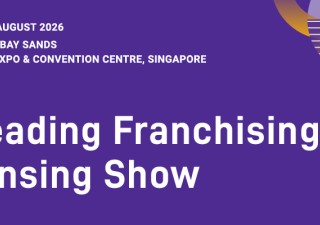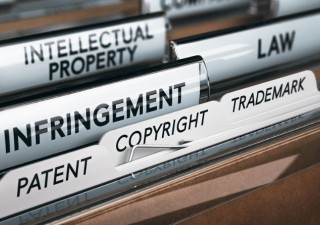Burberry Limited and others v. Megastar Shipping Pte Ltd [2019] SGCA 01
12 February 2019
![Burberry Limited and others v. Megastar Shipping Pte Ltd [2019] SGCA 01](https://asiaiplaw.com/storage/media/image/article/6915849303a3fe93657587cb9c469f00/banner/fc49306d97602c8ed1be1dfbf0835ead/conversions/original-blue-white-orange-and-brown-container-van-163726-extra_large.jpg)
Summary of Decision
In the first appeal decision of 2019, the Singapore Court of Appeal affirmed the High Court's decision that Megastar Shipping Pte Ltd, a freight forwarder, was not liable for trade mark infringement as the importer and/or exporter of counterfeit goods. The interpretation of "import" and "export" and the requirements for infringing "use" under Section 27(4) of the Trade Marks Act (the "TMA") were also clarified by the Court of Appeal.
Facts & Background
Various trade mark proprietors brought an action for trade mark infringement against the freight forwarding company, Megastar Shipping Pte Ltd (the "Respondent") for importation of counterfeit goods into Singapore by sea.
The various trade mark proprietors had to bring an infringement action to ensure the continued retention of the counterfeit goods. The goods would be released upon the expiry of the retention period unless:
The trade mark owner and infringer could reach a private settlement on the release of the counterfeit goods seized by Customs; or
An interlocutory court order preventing the release of seized counterfeit goods is obtained within 3 weeks of commencing the infringement action.
The High Court had held that the Respondent was not liable for trade mark infringement for use by import or export under Section 27(4) TMA. The decision was appealed by Burberry Limited and Louis Vuitton Malletier (the "Appellants").
For more information, please see our earlier client alert (click here) where we discussed the High Court's decision in Louis Vuitton Malletier v. Megastar Shipping Pte Ltd [2017] SGHC 2015.
Decision
The meaning of "import" and "export" under Section 27(4) of the TMA
The Court of Appeal confirmed that the interpretation of "import" as set out in the Interpretation Act ("IA") - "to bring or cause to be brought into Singapore by land, sea or air" - applied in the context of the TMA, and includes goods brought into Singapore only for the purpose of transit.
Similarly, the Court of Appeal also confirmed that the definition of "export", as set out in the IA - "to take or cause to be taken out of Singapore by land, sea or air" - applied in the context of the TMA. Further, the Court of Appeal clarified that an intention to export without any accompanying action clearly directed at fulfilling such an intention was insufficient to constitute infringement.
Trade mark Infringement is not a Strict Liability Tort
Most significantly, the Court of Appeal determined that in order to establish infringing "use" under Section 27(4) TMA for purposes of determining liability, the alleged infringer must have intended to import or export the goods under the signs and knew or had reason to believe that the signs were used on the goods. Thus, whether a freight forwarder is liable for import or export is "essentially a question of fact" and depended on the level of involvement of the freight forwarder.
The Court of Appeal agreed with the High Court that the Court had to take notice of the policy concerns regarding the liability of freight forwarders, who usually only have transitory and facilitative control of shipment and lack actual knowledge of the contents of the shipment beyond what is declared to them.
The Appellants had argued that trade mark infringement was a strict liability tort and that the Respondent's innocence could not be a defence. However, the Court of Appeal maintained that this would be an "unduly broad and overreaching principle which would result in injustice". Furthermore, the facts of the present case were distinguished from previous cases, where the defence of innocence was invoked but infringement was nonetheless found. The Court of Appeal held that the distinguishing factor was that in the prior cases, the defendants had at least known that infringing signs were applied or used on the goods.
Time for Assessment of Knowledge & Intention
Additionally, the Court of Appeal clarified that knowledge and intention are to be assessed separately at the time of import and export. Even where a freight forwarder has no knowledge or reason to believe that it has imported infringing goods, it would be at risk of trade mark infringement if it later comes to know or has reason to believe that the goods may be infringing but proceeds to export the goods.
Duty to Disclose
The Court of Appeal further clarified that even if the freight forwarder is not liable for infringement, they have a duty to disclose relevant information if they are in possession of counterfeit goods. This is in line with the recent amendments to the TMA via Sections 57 and 60 of the Intellectual Property (Border Enforcement) Act 2018 (No 34 of 2018) (the "IPBE Act"), which gives customs officers the power to obtain information from persons reasonably believed to possess such information or documents.
Liability of the Respondent
Liability for Import
The Respondent was not liable for importing under the sign. The Court of Appeal found that there was no evidence that the Respondent knew or had reason to believe that there were signs on the goods and they were merely providing a commercial service as freight forwarders:
Documentation merely indicated household goods and other generic merchandise
There was no reason to suspect that the goods were not as described
There was no evidence of intention to import trade marked products
Nothing suggested that the transactions were suspicious
The Court of Appeal emphasized that "nothing sinister" on the part of the freight forwarder could be implied, merely on the ground that counterfeit goods were found in the cargoes.
Liability for Export
As the goods were seized soon after arrival in Singapore, there was no opportunity for export, and the Respondent's mere intention to export was insufficient to establish liability under Section 27(4) TMA. Even if the Respondent had shipped the goods, knowledge or reason to believe that there were signs on the goods would have to be shown for infringement to occur.
Injunction
The Appellant's application at the appeal stage for a quia timet injunction to prevent export of the counterfeit goods was denied as the goods were already destroyed prior to trial. There was also no evidence of any threat or likelihood that future infringements would take place. Further, the Court of Appeal determined that the fact that the Respondent was still in business with the third party in Indonesia did not mean that the Respondent was or would be doing illegal business.
Implications
This case clarifies that trade mark infringement for "use" under Section 27(4) TMA is not a strict liability tort. The Court of Appeal affirmed the High Court's position that freight forwarders, trans-shippers or local consignees will not be liable for infringement under Section 27(4) TMA if it is shown that they have:
1. No intention to import/export goods under the sign; and
2. No knowledge that the infringing signs were on the goods.
Thus, the Court of Appeal has clarified that such parties are afforded protection against liability for trade mark infringement if they had no knowledge that the infringing signs were used on the goods.
It appears that a key factor the Court of Appeal took into consideration was the recent IPBE Act which came into force just prior to the Court of Appeal's decision but after the High Court's decision.
The Court of Appeal highlighted that even if a freight forwarder is not liable for infringement, they are under a duty to disclose relevant information if they are in possession of counterfeit goods (Sections 85A and 93A TMA).
Further, under the recent IPBE Act:
Customs will have the power to acquire any information or document relevant to enable IPR holders to institute intellectual property infringement proceedings against persons connected with the seized imports (Section 57 of the IPBE Act); and
IPR holders can acquire from Customs the details of persons connected with the detained imports/ exports necessary for instituting infringement proceedings (Section 60 of the IPBE Act).
As such, while the decision does offer more protection to freight forwarders, IPR holders are not without recourse.
They are now able to obtain more information on the actual importer and/or exporter from the freight forwarders, which will facilitate and assist IPR Holders to commence infringement proceedings against the relevant parties who will be liable for trade mark infringement i.e., the actual importer or exporter of the counterfeit goods.
The decision has a significant impact on the anti-counterfeiting strategy of IPR holders in view of the absence of a customs recordal system in Singapore. This is contrasted with Hong Kong and Australia, which both have a customs recordal system that provides their respective customs authorities the power to seize counterfeit goods which infringe recorded trade marks. As such, IPR holders will now have to reconsider how best to utilise border enforcement measures in Singapore to combat counterfeits.






